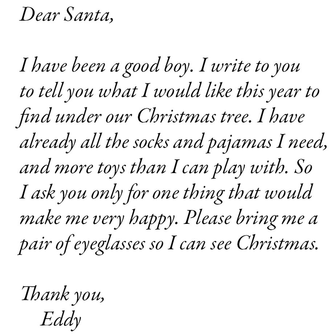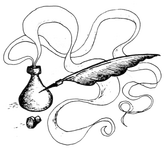Born Believers
An Indiana News Item
A second-grader at an Indiana public school was
“banished” by his teacher after telling his classmates
he didn’t believe in God. The 7-year-old was forced
to sit by himself during lunch for three days and not
to speak to other students because his teacher said
his views on religion had offended them. His parents
have filed a lawsuit
Dear old and new friends,
Reading the above news item, it seemed to me that the young 7-year-old student’s atheistic belief was far more disturbing to his teacher than to her students because of the way she responded. Why did she impose the severe three-day excommunication, including speaking to his classmates, unless she “feared” he might evangelize them?
Not surprising his second grade classmates were offended when he told them that God didn’t exist. According to Dr. Justin Barrett of Oxford University, “Children are born believers in a supreme being (God) and do not simply acquire religious beliefs through indoctrination. He further states if a group of children were abandoned and raised alone on a desert island they would all believe in a God. So the young second-grade atheist’s disbelief must have come from atheistic parents who either enlightened or robbed him.
Scholars believe from their research that children have a predisposition to believe in a Supreme Being/Creator since they assume that everything in the world was created with a purpose. As a result, small children resist the idea of evolution and are believers in creationism. Believing in a Supreme Being, depending upon the circumstances of your birth and childhood, may be addressed as Allah, Krishna, Yahweh or God. We enter this world believing in God, which isn’t the same as having faith in God—which is trusting God. From our education in Christianity we acquire faith…and with it fear! It’s a dreaded fear of God, of offending by sin and being tortured in Hell’s raging fires.
In life’s progression then comes the radical earthquake of adolescence’s passionate sexual urges, the embracing of evolution and the radical expanding of one’s frontiers with the infinities of the Space Age, not to mention today’s Internet and the array of technological marvels. Meanwhile, the majority regardless of their graduate and post-graduate degrees lack any education in religion and theology, so their basic understanding of God remains that of childhood or early adolescence.
At the same time, we are witnessing the slow death of institutional religion as major churches suffer ever-decreasing members and regular attendance at church services. At this moment we are also in the midst of a universal secularism which is a new untried experiment in human history, and only time will tell its consequences. In the midst of this confusing flux, you personally can be struggling whether you believe in or have faith in God!
In a time of personal crisis, you can pray with faith, calling upon your loving God for help. And when church authorities use man-made doctrines in God’s name to prevent people from being whom God made them to be, you can find yourself to be an agnostic—not a disbeliever, but a holy doubter.
Basically, religion, like the arts, is an attempt to find meaning and value in this life. So whenever you question the value of religion, briefly recall its purpose. Then wherever you are on your life journey—whether only halfway through or perhaps nearing the end—and you seriously wonder about your relationship with God, find joy and hope in psychologist Ernest Becker’s wise observation, “In our innermost soul we are still children, and remain so throughout life.”




 RSS Feed
RSS Feed